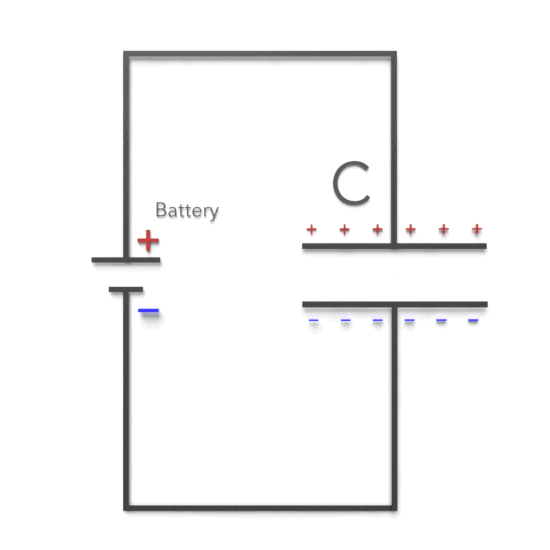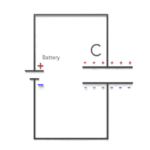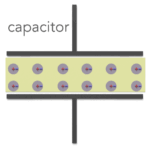30-second summary
Capacitor
A capacitor is a device that can store electric charge and normally consists of two conducting objects (usually plates or sheets) placed near each other but not touching.
Basically, capacitors consist of two metal plates separated by an insulator. The insulator is called a dielectric. (e.g., polystyrene, oil, or air).
Capacitors are one of the most used and useful electronic components used in any modern electronic and electrical circuit and devices.
The most common kinds of capacitors are:
- Electrolytic capacitors
- Ceramic capacitors
- Paper capacitors
- Film capacitors
- Mica capacitors
- Supercapacitors
See also: Capacitance
See also: Dielectrics

Niobium Capacitor
Niobium capacitors are a type of electrolytic capacitor that use niobium oxide as the dielectric material. They are similar to tantalum capacitors in terms of their construction and performance characteristics but are less commonly used in electronic circuits. Here are some characteristics of niobium capacitors:
- High capacitance values: Niobium capacitors are capable of providing high capacitance values, ranging from a few microfarads to several hundred microfarads.
- High voltage ratings: They have relatively high voltage ratings, typically ranging from a few volts to several hundred volts.
- Low leakage: They have low leakage, which means that they are able to maintain their charge over time.
- Polarized: They are polarized, which means that they have a positive and negative terminal and must be connected in the correct orientation in a circuit.
- Small size: They are generally smaller in size compared to other types of capacitors, which makes them suitable for use in space-constrained applications.
- High reliability: Niobium capacitors are known for their high reliability and long lifespan.
- Temperature stability: Niobium capacitors are stable over a wide range of temperatures, making them suitable for use in high-temperature applications.
Overall, niobium capacitors are a good alternative to tantalum capacitors for applications that require high capacitance values and high voltage ratings. However, their relatively high cost and lower availability compared to other types of capacitors may limit their use in some applications.



